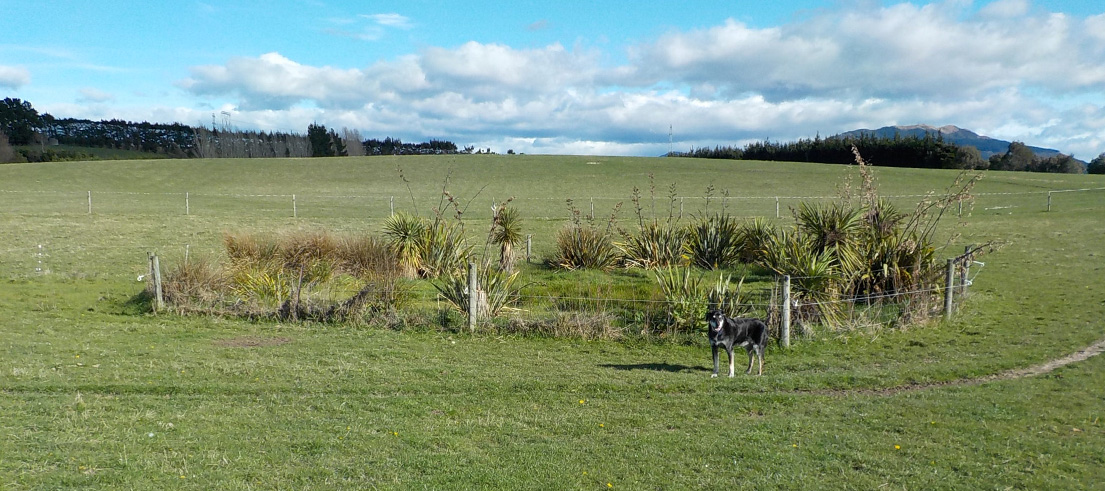
Keep your lifestyle block tip top
Waimakariri has more than 6,500 lifestyle blocks covering nearly 8 per cent of the district — about 17,250ha and growing.
Collectively, lifestyle blocks can have a significant impact on our environment as they typically have more people and infrastructure on a smaller land area, and are concentrated in areas where they become the dominant land use. Check out the Waimakariri Water Zone Committee’s Top Tips to love your land and help keep our rivers and streams clean.
What's it all about?
Protecting our waterways, wetlands, drains, springs, dams, and ponds — anything that connects to a waterway whether natural or man-made, permanent or temporary.
Understand your land
Learn where water flows on your property and where it goes. What’s it like in a drought? And in a flood? Know where NOT to put fences, troughs, and buildings. Avoid blockages and potential contaminants getting into water by clearing branches and debris, especially near culverts.
Keep stored materials, equipment, containers and animal facilities away from areas that flood.
Identify areas of bare ground and spots that become muddy when it's wet, making our water dirty. Keep animals out with temporary fencing and only graze when dry.
Heavy animals such as cattle, deer, horses, and pigs can damage stream banks and soil, and put mud, faeces, and urine in our water, so keep them away from these areas.
Protect your waterways
Keep waterway and drain banks vegetated, as bare banks can easily collapse and erode. Spot spray weeds if needed. Have a wide buffer strip on each side — long grass does a good job of filtering sediment.
Ensure that trough ballcocks are well protected from stock. Check troughs and tanks regularly for leaks and fix them straight away.
If irrigating, monitor soil moisture to determine requirements, ensure water use is within any take limits, and avoid ponding, run-off, and wasting water.
Love native plants and animals
Get help to identify and protect what you have and plan to enhance it. Control weeds and pests to protect these native treasures. Bring back your natives — Carex secta is an ideal native grass for bank protection and drain/waterway weed suppression.
Match your animal numbers to the pasture you can grow. Avoid overgrazing and pugging paddocks. Fewer well-fed stock stay in better health and can give better returns than under-fed stock.
If in doubt, get advice.
Monitor septic tanks
If it pongs, something’s wrong! If your tank hasn’t been emptied for more than 5 years consider getting a septic tank contractor to pump it out.
Regularly check the land application area to make sure effluent is not ponding. Filters need cleaning 3-6 monthly or get your system serviced by a professional. Use eco-friendly cleaning and laundry products to keep your wastewater treatment bugs happy.
Manage fertilizer and manure
Apply in warmer months when pasture is actively growing and best able to absorb nutrients. Avoid spreading if heavy rain is forecast and keep well away from waterways and gullies. Seek professional advice to avoid over-application.
Be responsible with rubbish disposal
Recycle waste such as baleage wrap, expired chemicals, containers, and household waste. Rubbish holes and waste can degrade your land and cause contamination. Compost dead stock or bury well away from waterways. Burning dry tree trimmings produces less smoke than green/wet.
Help is available
Advice and support are available from NZ Landcare Trust, Waimakariri Biodiversity Trust, Environment Canterbury, and Waimakariri District Council.
Top Ten Tips for Lifestylers was produced by the Waimakariri Zone Committee with support from NZ Landcare Trust, Environment Canterbury and Waimakariri District Council.
